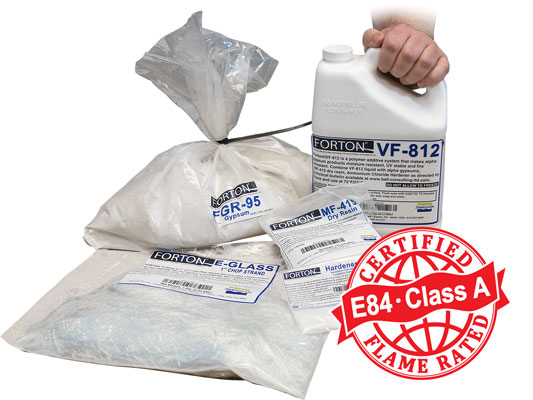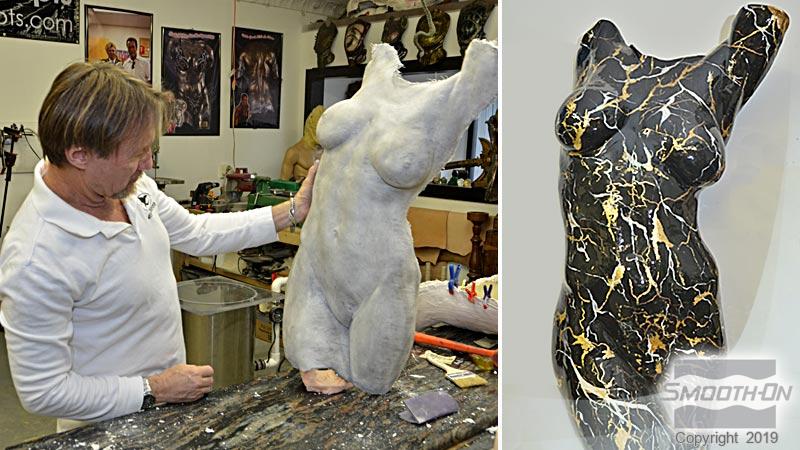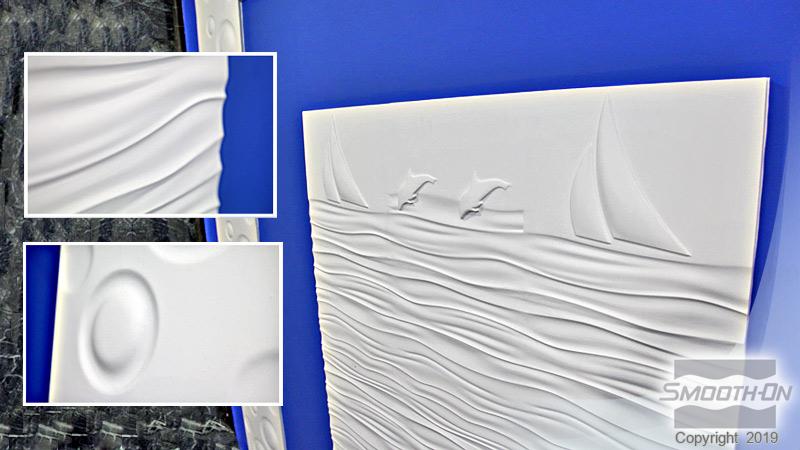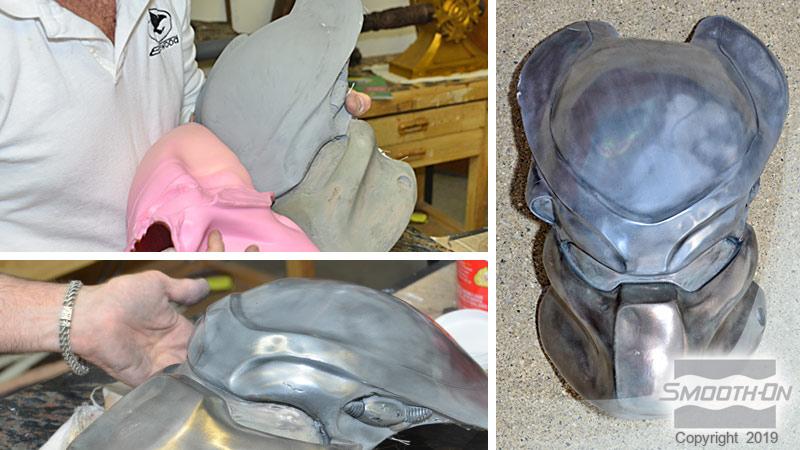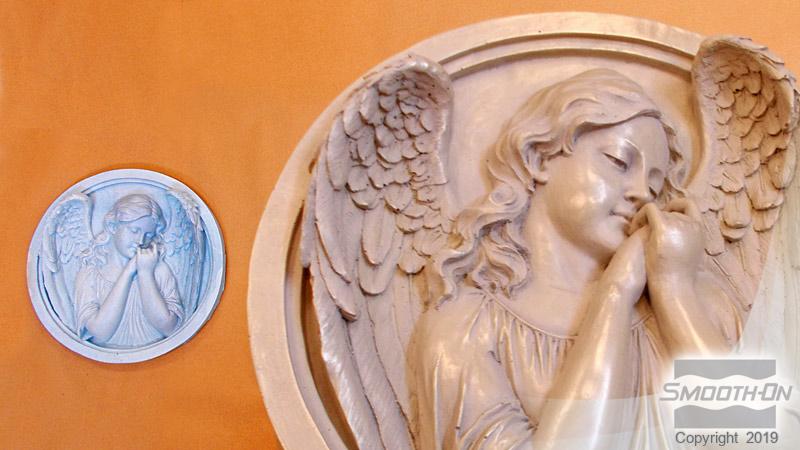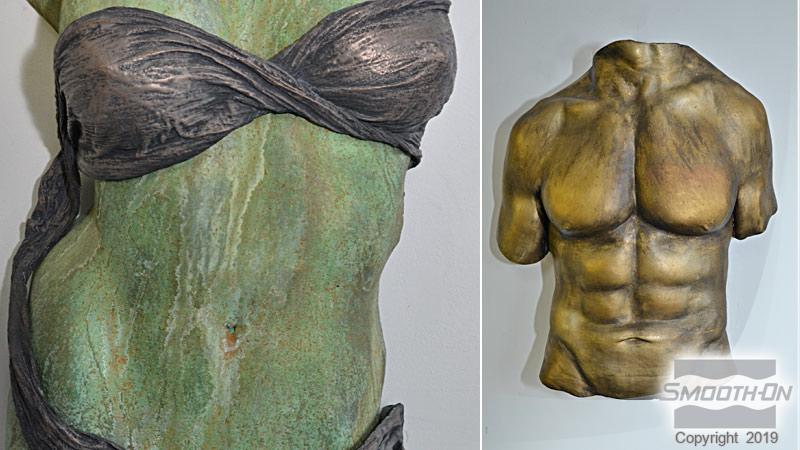Forton™ MG Starter Kit
KIT INCLUDES: 7# VF-812, 1# MF-415, 22gram Hardener, 10# FGR-95, & 1# Chopped E-Glass
Forton™ MG is a unique combination of high-strength alpha hemi-hydrate gypsum with water based polymer chemistry that is reinforced with "E" glass fiber. FMG is the first technology to make gypsum an exterior product, when painted or sealed. Forton™ MG can be used for restoration and replication of natural façade materials, architectural ornamentation, decorative arts casting, flower pots and cold cast metal elements and sculpture. The casting methods are essentially the same as that used for casting in urethane or polyester resin and fiberglass. FMG can be slush cast (hollow), hand laid-up, sprayed through the proper equipment or poured for solid casts. The system is simple to use for either the beginner or the experienced user.
A variety of colors and finishes can be incorporated into the FMG face mix. UV stable liquid or dry powder pigments can be added to FMG to provide a vast range of colors. Aggregates can be added to the face mix to achieve desired texture effects when sandblasted and sealed. Metal powders can also be added to the face mix to achieve various cold cast metal effects.
Features
- Forton™ MG is lightweight and easy to work with
- FMG is non-toxic, odorless and ultra strong
- Water can be used for clean-up prior to FMG set
- Class I fire rating according to ASTM E-84
- Quick demolding times
Instructions
Mold Preparation - If casting or laying up into a urethane rubber mold, first apply a release agent such as Ease Release™ 2831. Newly mixed Forton™ MG can be released from another Forton™ MG surface using a minimum of three coats of Sonite™ Wax. If you want to paint your finished casting, we suggest using a silicone rubber mold (Mold Max™ Silicone), as no release agent is required to facilitate demold. Because no two applications are quite the same, a small test application to determine suitability for your project is recommended if performance of this material is in question. Required Materials - Assemble all components and accessories before you begin.
Hand Lay Up Using Fiberglass Matting - For best results, use ¾ oz. or 1 oz. Chopped Strand Mat or Continuous Strand Mat. Mix Forton™ MG at the “standard” mix design and brush a face coat into a mold. Let set until the appearance starts to turn from shiny to dull, or until you can no longer see your fingerprint if touched. Mix another batch and brush a layer over initial face coat. Lay matting over fresh material and let material penetrate matting. Brush with a clean paint brush, applying light pressure over surface to minimize entrapped air. After a uniform coating is attained, apply another layer of matting and brush again. Apply a minimal amount of Forton™ MG - just enough to wet out the surface. Repeat as necessary until 3/8” (10 mm) thickness is attained.
Hand Lay Up Technique Using Chopped Glass - Another technique for making strong, lightweight elements is to mix chopped fiber directly into the Forton™ MG standard mix. Adding chopped fiber takes much less time than layering chopped matte. The chopped fiber will be added to the mix as a percentage of the total weight. Fiber can be added in concentrations of 5% to 12%.
Adding Pigments And Fillers - Because Forton™ MG blends easily with different materials, realistic effects can be achieved with the addition of various pigments and/or fillers. Liquid or dry pigments can be added during mixing. Other metal powders can be added to attain specific metal finishes (copper, pewter, silver). A marble finish can be attained by adding marble dust (calcium carbonate), 150 parts by weight to original mix formula. Quarry Tone™ fillers from Smooth-On can be added to give a granite look. Adding malachite will give a realistic porcelain finish. Wood grain finishes can be attained by adding powdered pecan shells or similar fillers. Metal powders and fillers are pre-mixed with dry components by weight. Amount of filler to be added depends on desired effect. Some experimentation may be necessary.
